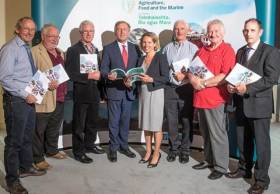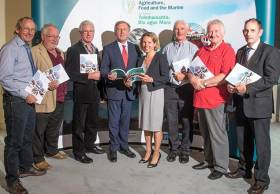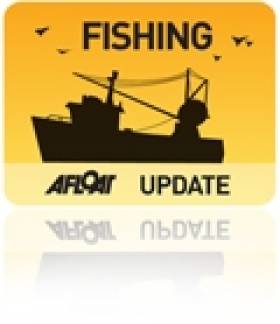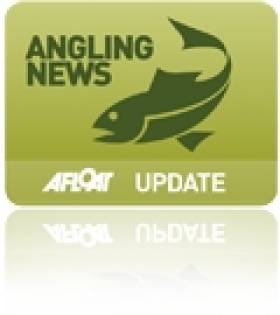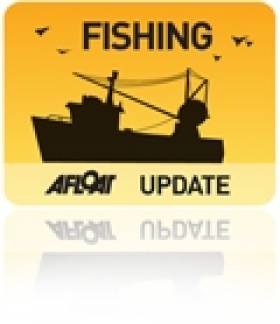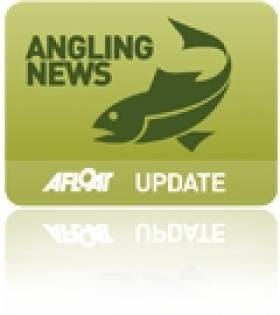Displaying items by tag: fisheries
Inland Fisheries Ireland Recruiting Temporary Research Staff
#Jobs - Inland Fisheries Ireland’s R&D division has secured external funding to undertake a series of research projects, which are currently seeking to recruit a number of staff as research technicians and fisheries assistants.
Interviews will take place in mid to late March to fill a number of positions for periods of up to a maximum of 10 months’ duration during 2017, and a panel for subsequent positions will be compiled following interview.
All positions will be based at the current IFI head office in Dublin’s Citywest Business Campus.
Research Technician
The appointee will provide technical support to the Senior Research Officer (SRO) and project team in the compilation and analysis of data of relevant biotic and abiotic information for fish species in Irish lakes, rivers or estuaries, using standard fish sampling methodologies.
Principal duties and responsibilities include:
- Data collection: Carry out and lead field surveys when necessary, collect data on the abundance, composition and age structure of fish populations from designated waterbodies, collect data on the distribution, biology and ecology of fish species in designated waterbodies.
- Data analysis: Collate and input data into project databases and present data in report format as required, data mining, conduct statistical analyses (descriptive and analytical) of data sets, including using relevant statistical software, manage fisheries datasets for the project, assure quality of data including editing and verification of consistency, create tables, charts and graphics with narrative text, interpret data, analyse and prepare reports.
- Reporting: Maintain raw data and all other records in a clear concise format and compile and maintain all records in a manner compatible with GIS.
- Other duties: Liaise with the project team and stakeholders and attend/contribute to information meetings as required, liaise with other IFI staff working on related projects as required.
Requirements for this position include a relevant diploma or degree or equivalent, and a full driving licence valid in the State. Salary is at the first point of the technician scale (as at 1 January 2016): €32,231 to €51,717 (including 1 LSI).
Fisheries Assistant
The appointee or appointees will assist the Senior Research officer and team in the compilation and analysis of relevant biotic and abiotic information for fish species in Irish lakes, rivers or estuaries, using standard fish sampling methodologies.
The successful candidate or candidates will be expected to:
- Assist on field surveys (if necessary).
- Undertake processing of sample material and providing assistance to the SRO with sample analysis.
- Assist in the processing of fish samples, collate scale, otolith and opercular bone samples to provide information on age profile and growth rates of fish species, and input data into IFI databases.
- Maintain raw data and all other records in a clear concise format.
- Compile and maintain all records in a manner compatible with GIS.
- Liaise with other IFI staff working on related projects as required.
Requirements for this position include a Leaving Certificate or equivalent with minimum Grade C on at least two Higher Level papers, to include one of Biology, Chemistry, Physics, Geography or Maths, and a full driving licence valid in the State. Salary is at the first point of the fisheries officer/fisheries assistant scale (as at 1 January 16): €22,907 to €36,235 (including 2 LSI’s).
Applications, (a cover letter and up-to-date CV) should be sent to [email protected] by 5pm on Friday 3 March. Please quote either ‘Fish’ for Fisheries Assistant roles or ‘Tech’ for the Technician role,s depending on which you wish to apply for. Late applications will not be processed.
Short listing will be based on information provide in the cover letter and CV. Canvassing will disqualify. Inland Fisheries Ireland is an equal opportunities employer. All enquiries to [email protected].
IFI Recruiting Fisheries Officers For 2017 Season
#Jobs - Inland Fisheries Ireland (IFI) is currently seeking to recruit a number of staff as fishery officers nationally for periods of up to six months during 2017.
Fisheries officers will be primarily concerned with the implementation and enforcement of the provision of the Fisheries Acts, Water Pollution Acts and other relevant statutory provisions. They are required to:
- Provide, in co-operation with other fisheries staff, comprehensive conservation and protection services, inland and at sea, within any part of a fisheries district and/or any other area assigned within one or more fisheries districts.
- Provide, in co-operation with other fisheries staff, comprehensive improvement, and development and fisheries management support services within any part of a fisheries district and/or any other area assigned within one or more fisheries districts.
A number of positions will be concerned with assisting either directly or indirectly in fisheries related research projects. The full job specification is available HERE. Please note a full driving licence valid in the State is required.
Applications (a cover letter and up-to-date CV) should be emailed to [email protected] by 5pm on Monday 27 February quoting ‘HR/FO/2017’. Late applications will not be processed. All enquiries to [email protected]
Salary will be at the first point of the Fishery Officer Scale (as of 1 January 2016) plus an unsocial hours allowance, which will be paid at either 50% or 100% relative to the number of unsocial hours worked.
IFI is an equal opportunities employer. Canvassing will disqualify.
Marine Minister Announces €12M EMFF Funding For Fisheries Action Groups
#Fishing - Marine Minister Michael Creed has announced €12 million funding under the European Maritime and Fisheries Fund (EMFF) Operational Programme for seven Fisheries Local Action Groups (FLAGs) to fund local development initiatives in Ireland’s coastal communities.
The seven new groups – South West (Kerry), West (Galway, Clare), Northwest (Mayo, Sligo), North (Donegal), South (Cork), Northeast (Louth, Meath, Dublin) and Southeast (Wicklow, Wexford, Waterford) – were selected as part of a competitive process under the community led local development element of the €240 million EMFF Operational Programme.
Each FLAG received a sum between €1.5 million and €1.98 million in funding that is 50% financed by the EU.
“This funding will be allocated by and to those communities by the seven FLAGs recently established,” said the minister. “The FLAGs are made up of local actors from the fisheries and aquaculture sectors and others with a strong interest in fostering the development of our coastal communities.
“The funding will be available to the FLAGs over the period 2017 to 2021 approximately and is an eight-fold increase on the €1.5m that was available under the previous FLAG scheme.”
Bord Iascaigh Mhara chief executive Tara McCarthy added: “As the State agency responsible for providing a range of administrative and technical supports to the FLAGs, we welcome the significant increase in funding for a programme that has already contributed €1.5 million in direct and indirect investment to our coastal communities.
“Each of the FLAG groups represents 7 coastal communities where the importance of the Irish Seafood Sector from our fishermen to seafood processors and retailers is paramount. This increase in funding will enable BIM to assist the FLAG groups to develop strategic plans that will enhance and in some cases diversify their existing marine related resource and enterprise.
“On behalf of BIM, I would like to thank all of the FLAG members for their dedication to this programme.”
| FLAG Name | Coastal areas of County | EMFF Allocation |
|---|---|---|
| South West FLAG | Kerry | €1.53 m |
| West FLAG | Galway, Clare | €1.80 m |
| Northwest FLAG | Mayo, Sligo | €1.50 m |
| North FLAG | Donegal | €1.95 m |
| South FLAG | Cork | €1.98 m |
| Northeast FLAG | Louth, Meath, Dublin | €1.56 m |
| Southeast FLAG | Wicklow, Wexford, Waterford | €1.68 m |
| TOTAL | €12 m |
Minister for Agriculture, Food and the Marine, Michael Creed TD met representatives of the seven new Fisheries Local Action Groups (FLAGs) at the National Seafood Centre in Clonakilty today. €12m is available to the FLAGS under Ireland’s Operational Programme for the European Maritime and Fisheries Fund (EMFF). Each FLAG will now receive technical support to prepare a Local Development Strategy, in consultation with local communities, setting out the FLAG priorities for development and support in their area.
Minister Creed said, “I am pleased to announce the commencement of this Community-Led Local Development Process. Job creation and Rural Development are key priorities for this Government. The success of the FLAGs under the previous Programme shows that Fisheries and Aquaculture communities can identify priorities to target investment best suited to their area’s needs and I am enthusiastic about the opportunities which will emerge from these 7 new
FLAGs .”
Commenting on the success of the programme to date, Tara McCarthy, CEO, Bord Iascaigh Mhara (BIM), the Seafood Development Agency said, ‘Over the period 2012-2015, more than 180 projects were awarded grants of just under €1m. This initial funding has supported a wide range of initiatives targeting job creation, social inclusion, tourism, community regeneration and market development around our coastline. This first phase of the FLAGS initiative has already resulted in 14 new businesses being created, 16 jobs being safeguarded and 27 new jobs being created’.
Co- funded by the European and Maritime Fisheries Fund and the Exchequer as part of Ireland’s €241m EMFF Operational Programme, the initiative is focused on community-led development to enhance the economic opportunities and social sustainability of Fisheries and Aquaculture dependent areas. The process will see consultation take place in each of the seven FLAG areas to contribute to a Local Development Strategy to support job creation, adding value, promoting innovation as well as enhancing environmental assets and promoting each area’s maritime cultural heritage.
Under the previous Seafood Development Programme which ran until 2015, FLAGs were established for the first time in 2012. Over 180 projects were awarded grants of just under €1m and saw a wide range of initiatives targeting job creation, social inclusion, tourism, regeneration and market development supported around the coastline.
Bord Iascaigh Mhara (BIM) is the implementation partner working directly with the FLAG groups to assist them to establish and develop their own Local Development Strategies. The Department of Agriculture, Food and the Marine oversees the programme and EMFF/Exchequer funding aspects.
The Minister for Agriculture, Food and the Marine, Simon Coveney TD, today expressed concern at proposals for some of Ireland’s key fisheries quotas, ahead of annual EU Fisheries negotiations in Brussels next week. The Minister said that the rolling out of the new discards ban for a number of Irish stocks added to the complexities of this year’s negotiations.
Minister Coveney said today that “Some of the proposals for stocks of great importance to Irish fleets are unnecessarily restrictive in my view and do not reflect scientific advice. We must set quotas that support sustainable fish stocks and I will support cuts where the scientific advice is clear that that is the right thing to do. The Commission is proposing a 43% and 27% cut to our cod and haddock quotas in the Celtic Sea, these stocks are stable and cuts of this magnitude are not justified. Other serious cuts are proposed for our very valuable prawn quota which is not supported by the scientific advice and for whitefish quotas in the Irish Sea. We must set quotas that support sustainable fish stocks and I will support cuts where the scientific advice is clear that that is the right thing to do. I will be making a strong case next week to Commissioner Vella to make significant changes to these quota proposals. ”.
The Minister added that “There is an added complexity to this year’s negotiations as the new landing obligation for certain stocks will apply from the 1st of January 2016. During the reform of the Common Fisheries Policy, brokered by Ireland, I was a strong advocate of a phased introduction of discards ban to end the wasteful practice of discarding high volumes of fish at sea. As part of that Reform, it was also agreed that quotas would be adjusted upwards for stocks covered by discards ban to take account of the new situation that all catches must now be landed. It is vital that this ‘uplift’ in quotas is fully applied to the stocks that come under the discards ban in 2016, to support its practical implementation.”
In 2016 Irish fisheries covered by discards ban include prawns, whiting in the Celtic Sea and Haddock in the Irish Sea and the area west of Scotland.
Minister Coveney concluded by saying that “I am meeting our industry representatives this evening in advance of Council and I also intend to meet other stakeholders on margin of the Council to get a full understanding of priorities. During the Council I will keep the industry representatives and other stakeholders fully up to date on progress and developing issues.”
The Annual Fisheries negotiations to decide on quotas for 2016 takes place on the 14th and 15th of December in Brussels.
Cork School Named National ‘Something Fishy’ Competition Winners 2015
Fifth and sixth class students from St Mary’s Senior School, Dunmanway, Co. Cork, were named National Winners of Inland Fisheries Ireland’s ‘Something Fishy’ competition award at a prize giving ceremony held in the West Cork Education Centre, it was announced today
The students received the award and a €700 prize for their class project ‘The Wonderful Water Kids Show’. Project entries in this year’s competition addressed the themes ‘Water: A Precious Commodity’ and ‘Water Quality and the Environment’. Their innovative entry comprised a digital and artistic interpretation of the theme, presented through a video format.
Jim Daly TD and Noel Harrington TD, congratulated the students while presenting the perpetual ‘Something Fishy’ award to the students on behalf of Joe McHugh, Minister for Natural Resources, who was unable to attend the event.
Ms Mairead Twohig, Principal, St Mary’s Senior School, was presented with the school prize by Michael McCarthy TD, at the ceremony. Commenting today, Ms Twohig said: “I am delighted to accept this award on behalf of the students of St Mary’s Senior School, who have demonstrated their excellent understanding of water and its huge importance in the world in their ‘Wonderful Water’ project”.
Ciaran Byrne, CEO of Inland Fisheries Ireland (IFI), commented: “I would like to thank the participant schools and the staff of Inland Fisheries Ireland, who bring to life the ‘Something Fishy’ educational programme, not only at St Mary’s but at many other schools around Ireland. IFI is committed to this programme which I hope ignites an interest in all things fish, fishing and fish habitat.”
Speaking at the event, Suzanne Campion, of IFI, said: “‘Something Fishy’ is an educational resource designed and promoted by IFI in conjunction with the Blackrock Educational Centre. It ensures that children do not become an ‘endangered species’ on the banks of rivers, lakes and our coast. In a typical year, we bring the programme to around 100 schools across the country. Every year, IFI staff aim to make the programme exciting and interesting for children so that learning is easy and fun.”
Those addressing the attendees included Mary O’Donovan, Director of West Cork Education Centre and Pat Seaver Director of Blackrock Education Centre. Both educationalists applauded the high production standards of St Mary’s Senior School’s winning project and noted the many teaching and learning experiences emanating from the strand and strand units of history, geography, science in particular, but also through linkages and integration with most subjects in the new curriculum.
‘Something Fishy’ 2015/16 programme
Aimed at fifth and sixth class students at primary level, the programme is based on the life cycle of salmon and gets students to explore, water, fish, fish stocks, angling, conservation of rivers and lakes and fish as part of the food chain. As well as class based work Inland Fisheries Ireland fishery officers take students into the ‘field’ to get hands on experience of their work. A comprehensive set of resources for teachers and children is available on www.somethingfishy.ie
Schools interested in participating in the 2015/16 programme should contact their local Education Centre for details.
This year’s winning entry ‘The Wonderful Water Kids Show’ can be viewed online at: www.somethingfishy.ie/blog.html.
#seafood – Minster for Agriculture, Food and the Marine, Simon Coveney TD today welcomed the EU Fisheries Commissioner, Karmenu Vella, to the Marine Institute in Galway.
Minister Coveney said "I am delighted to welcome Commissioner Vella to Ireland on his first official visit as Commissioner for Maritime Affairs and the Environment. While the Commissioner will have many opportunities over the coming days to learn about the overall importance of maritime affairs to Ireland, today our focus was on the seafood industry. In particular, this was an opportunity for me as Minister and the relevant stakeholders to provide the Commissioner with an overview on the seafood industry in Ireland and the challenges and opportunities in implementing the new reformed Common Fisheries Policy."
Commissioner Vella, who is responsible for Maritime Affairs and the Environment, is on a three day visit to Ireland during which he will have a number of engagements, the first of which was roundtable discussion with seafood industry stakeholders in the Marine Institute.
Minister Coveney hosted a discussion between the stakeholders - representing the catching sector, processors, the aquaculture sector as well as the environmental pillar – and the Commissioner during a two hour meeting today in the Marine Institute.
Minister Coveney went on to say "Today was a very valuable opportunity for seafood stakeholders to directly engage with Commissioner Vella and to express their views on a wide variety of issues of direct importance to coastal communities dependent on fisheries and aquaculture in Ireland. This kind of direct engagement will ensure that the Commissioner has a solid understanding of the issues of concern to Ireland as we implement the new CFP. In particular, stakeholders raised issues around the phasing in of the new discards ban or Landing obligation and the objective of achieving maximum sustainable yield or MSY by 2020 at the latest".
#faw – A programme of activities to mark Fisheries Awareness Week 2015, the annual event run by Inland Fisheries Ireland (IFI) was launched today, with a range of fisheries-related public events in angling hotspots around the country from Friday 15th to Sunday, 24th May.
Fisheries Awareness Week runs nationwide each year in early summer, and aims to encourage adults and children to take up fishing as a new hobby. To achieve this, IFI works with angling clubs and organisations to promote all types of angling – from trout spinning to fly fishing.
IFI also uses this platform to promote its role in protecting and conserving our fisheries resource. IFI works with existing anglers to heighten their awareness of the environment with events ranging from game, coarse and sea angling demonstrations, river walks, open days at fishery facilities and more.
Commenting on Fisheries Awareness Week, Dr Ciaran Byrne, CEO of Inland Fisheries Ireland, said: "This annual series of public angling events has proven highly popular and every year hundreds of people turn out to join angling clubs for introductions to shore angling, fly casting and more. We are particularly delighted that every year, adults and children who have never fished before attend these events and discover their passion for what is a great hobby.
"Ireland offers a wealth of rivers and lakes as well as fantastic stocks of high-quality fish. The importance of protecting and conserving our fisheries resource in Ireland cannot be understated – it contributes to our health and wellbeing, our environment and our economy. Fisheries Awareness Week is a fantastic way of raising awareness nationwide."
A number of events will take place from Cork to Donegal, including activities such as an exploration of the sea shore with a marine biologist in Waterville; an introduction to fly fishing and spinning for trout in Balrothery; and introductions to fly fishing in Carrigavantry, Co. Waterford and Meadows Trout Fishery in Fanad, Co Donegal. Events are free and open to all.
For the full programme of events for Fisheries Awareness Week 2015 visit here
Progess at Blue Whiting Fisheries Negotiations in Ireland
#fisheries – Minister for Agriculture, Food and the Marine, Simon Coveney TD today welcomed the progress made at the international Blue Whiting Fisheries negotiations in Clonakilty.
The Minister said "I am pleased that serious efforts were made this week to resolve the contentious issue of how this important fish stock is shared between the various parties. The current sharing arrangement for this large fish stock, which is heavily fished to the north west of Ireland and Scotland in the springtime, has broken down .The European Union and other parties are looking for a fairer long term sharing arrangement of this valuable resource."
The Minister reported that at this week's negotiations "The European Commission made a strong case for an increased EU share, which would also mean an increase in Ireland's quota. It's unfortunate that a final agreement was not possible with our international partners in this fishery but substantial progress was made in the negotiations. I am hopeful that an equitable sharing arrangement can be found when the parties next meet."
Negotiations on international management of the very large North East Atlantic Blue Whiting fishery began last Tuesday and were hosted by Ireland on behalf of the European Union at the National Seafood Centre in Clonakilty, Co. Cork. Delegates from France, United Kingdom, Spain, Sweden, Denmark, Netherlands Norway, Iceland, Faeroes Islands, as well as Ireland were in attendance.
The European Commission had requested that Ireland host the talks on behalf of the European Union at the National Seafood Centre. Fishing industry representatives were also present to monitor the negotiations. The Blue Whiting fishery is very important to Ireland and for 2015 the Irish quota is over 23,000 tonnes.
This quota is landed directly into Killybegs and is increasingly processed for human consumption in fish factories in Killybegs , who have pioneered the use of this resource for human consumption. In addition to the catch by the Irish fleet, vessels from Norway & the United Kingdom have landed over 32,000 tonnes of Blue Whiting into Killybegs this year, creating additional employment in the fish processing industry.
Inland Fisheries Ireland Confirms Two Bass Daily Bag Limit
#bass – Inland Fisheries Ireland (IFI) has confirmed today that the Bass Fishing Conservation S.I. No. 826 OF 2007 remains in force and imposes a bag limit of two bass in any one period of 24 hours. The Irish bye-law also places a ban on angling for bass during the spawning season, which runs from 15th May to the 15th June.
On 29th March 2015, the European Commission introduced a daily bag limit which allows for 'not more than three' bass to be retained by anglers. This limit complements and supports Ireland's conservation measures, and those implemented by other countries, to assist in the recovery of bass stocks across Europe.
The limit is operational in the International Council for the Exploration of the Sea (ICES) divisions: IVb, IVc, VIIa, VIId, VIIe, VIIf, VIIg, VIIh, VIIj and VIIk, and highlighted in the map above.
Inland Fisheries Ireland (IFI) has a confidential hotline number to enable members of the general public to report incidents - 1890 34 74 24 or 1890 FISH 24. This phone line is designed to encourage the reporting of incidents of illegal fishing, water pollution and invasive species.




























